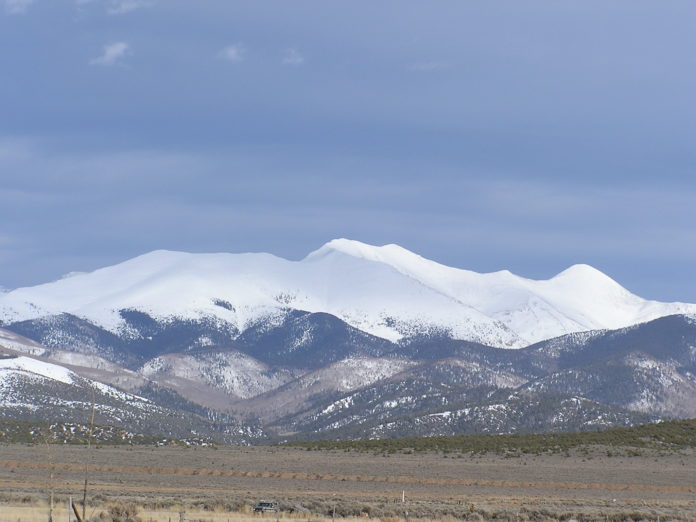
Forty years ago, landowners in the San Luis Valley sued the owner of Cielo Vista Ranch to secure their historical right to access the property. Two decades later, the Colorado Supreme Court concluded they may access the property for grazing, timber and firewood collection. But the landowners and their descendants say that despite the high court’s ruling, they’ve been intimidated and harassed on the property, and they’re asking a judge to protect their rights and put an end to the long-running litigation.
In a two-day hearing scheduled for Sept. 27 and 28, a Costilla County judge will consider the landowners’ motion to safeguard their rights. They have asked the court to declare that the owner’s attempts to limit their access to the property is a violation of their rights and to order Cielo Vista Ranch to use the “least intrusive means” for protecting its ownership interests. They also want the court to create a process for landowners to protect their rights and obtain relief outside of filing more lawsuits.
The landowners allege that whenever they enter Cielo Vista Ranch, which has been owned by Texas oil heir William Harrison since 2017, “employees approach them with hostility and grill them about why they are on the [ranch].” They say ranch employees monitor and follow them, often employing drones to track them both on and off the property.
According to the motion, Cielo Vista’s employees also approach them with visibly holstered guns, keep semi-automatic weapons in their trucks and travel with guard dogs. One landowner even testified that someone from the ranch flew a black helicopter so close that it spooked his cows, causing them to scatter and forcing him to spend months reassembling the herd.
They want the court to prohibit the ranch’s use of electric fences, guard dogs and continuous surveillance and to require ranch employees to follow strict procedures for questioning and confirming the access rights of people who enter the property. The landowners have asked the judge to appoint a Special Master at Cielo Vista Ranch’s expense to handle any future violations of their right to access the 83,000-acre property.
Cielo Vista Ranch disputes the allegations of harassment and intimidation. Video evidence at next week’s hearing will show employees “being professional and cordial” as well as “evidence of rampant trespass and misuse of the Ranch,” according to court documents.
The ranch owners also argue that nearly 6,000 people have the right to access the property according to prior court findings, but the motion is premised on the complaints of just 12 people, none of whom are class representatives. “The Court should reject this attempt by approximately .002% of the Plaintiffs to broaden the access rights of the class as a whole,” Cielo Vista Ranch states in its response. “The Motion is not brought by the class representatives and should be denied on that basis alone.”
Cielo Vista Ranch says the Costilla County court lacks jurisdiction to appoint a Special Master or grant any of the other relief the landowners want. According to the ranch owner, when the Colorado Supreme Court remanded the case in 2003, it gave the lower court a limited set of tasks to complete: identify all people with access rights and enter orders ensuring those rights. “The supreme court did not remand this case with any decree to hold it open in perpetuity to police the actions of the Plaintiffs or CVR,” they argue.
The ranch owner made similar arguments in a recent motion to dismiss for lack of jurisdiction. However, Costilla County District Court Senior Judge Kenneth Plotz denied the motion on Sept. 6. “The language of the appellate courts makes it clear to me that the Court does have continuing jurisdiction and indeed, jurisdiction to hear the issue raised by Plaintiffs’ motion to safeguard landowner rights,” Plotz wrote, noting that the Colorado Supreme Court directed the trial court to “enter all necessary and appropriate orders” to safeguard the landowners’ rights.
The landowners’ claim to access the ranch comes from an 1863 document penned by Carlos Beaubien, a Quebec-born trader who acquired a million acres in the San Luis Valley in the 1840s, when it was Mexican territory. Beaubien convinced settlers from New Mexico to move to the area and, in the document, granted them access to the land. In 1864, the property — by then within U.S. borders — was purchased by William Gilpin, first governor of the Territory of Colorado, who agreed to honor Beaubien’s promises to the settlers and their descendants.
The mountainous tract of land now known as Cielo Vista Ranch was purchased in 1960 by lumber tycoon Jack Taylor, who started fencing off and limiting access to local landowners after acquiring the property. The landowners sued Taylor in 1981, launching Colorado’s longest-running lawsuit.
After striking out at the trial court and Court of Appeals, the landowners secured access to the land when the Colorado Supreme Court ruled on the case in 2002. In a related 2003 decision, the high court clarified which present-day landowners may claim access to the ranch, concluding that those who can trace the settlement of their property to the time of Gilpin’s ownership or earlier have a valid claim.
In 2004, Texas investors acquired the property and changed its name to Cielo Vista Ranch. They also sued to challenge the process used to identify and allocate access rights to the landowners. The Court of Appeals ruled against the ranch owners in 2018, a year after the property changed hands to current owner Harrison.

